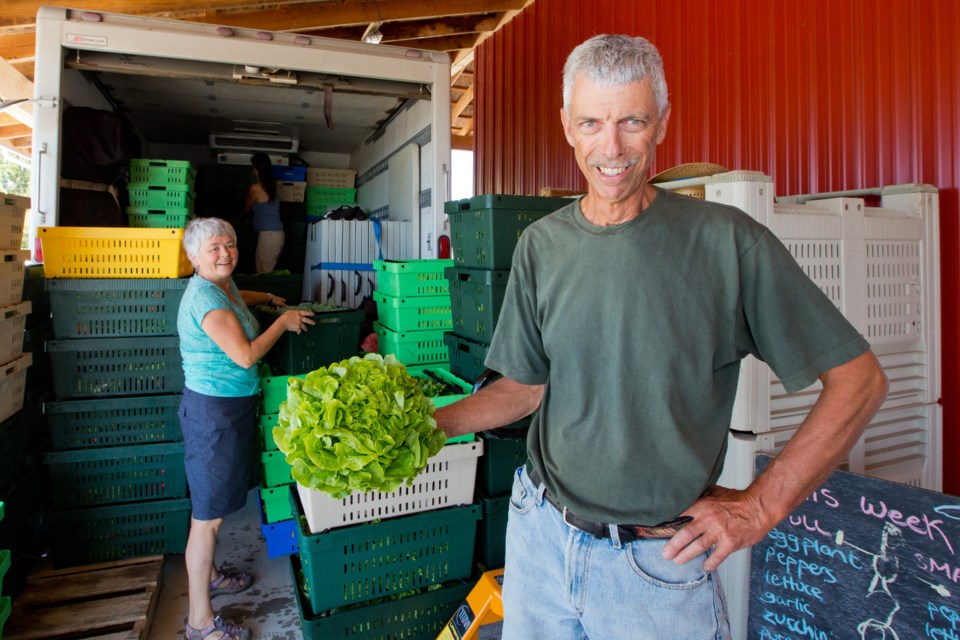Farmers are accustomed to dealing with challenging weather, but the scale and scope of changes in the climate are projected to exceed anything they've experienced in the past.
A new pilot project from the B.C. Agriculture and Food Climate Action Initiative, with participation from local partners, has developed a series of strategies to increase the resilience of Delta's agriculture sector in a changing climate.
"As an industry, we need to boost our resilience," said Rhonda Driediger, chair of the B.C. Agriculture Council. "But because B.C. agriculture is so diverse, we need support from all levels of government, including local and regional, to enhance our sector."
With most of its farmland less than two metres above sea level, risk of coastal flooding was identified as a significant vulnerability in Delta.
"We recognize that we need to further analyze the impacts of a sea level rise so that we can make more informed decisions," said dairy producer Jerry Keulen, a member of Delta's Agricultural Advisory Committee. "One of our strategies includes partnering with neighbouring local governments to study the economic and social impacts [of storm surge flooding]."
Flooding is not the only issue, said Delta Farmers' Institute president Dave Ryall.
Another is making sure farmers have enough fresh water for irrigation.
He said farmers get water out of the Fraser River to help irrigate during the summer. Depending on the flow of the river, salt water could prevent access to the fresh water.
"I guess they think there might be less snow pack. If there's less snow pack that means less fresh water coming down the Fraser River and that means when we get high tides, the ocean, the salt water is going to go further up the river," he said.
Another issue is potential change in seasonal rainfall patterns and if that could require modifying any crops.
"It's not going to be overnight, any of this, it's all going to be over decades," said Ryall.
"Adapting to climate change will require innovative and cooperative approaches and we look forward to continuing to work with Delta's producers to ensure that Delta's agriculture sector continues to thrive in the future," said Mayor Lois Jackson.
The project was made possible due to funding from the federal and provincial governments, the Pacific Institute for Climate Solutions and in-kind support from the Corporation of Delta.
The Cowichan Valley Regional District and Peace River Regional District also participated in the pilot project.
The three regional strategies are available online through the B.C. Agriculture & Food Climate Action Initiative at: www.bcagclimateaction.ca/adapt/regional-strategies/.
"The high priority topics, strategies and actions identified in these adaptation strategies will be very important for the long term sustainability of our sector in these regions," said Driediger. "BCAC would like to see implementation of the identified actions and similar studies completed for all agricultural areas in B.C."
The B.C. Agriculture and Food Climate Action Initiative was established by the B.C. Agriculture Council in 2008. It is led by an advisory committee of producers, processors and government agencies.



